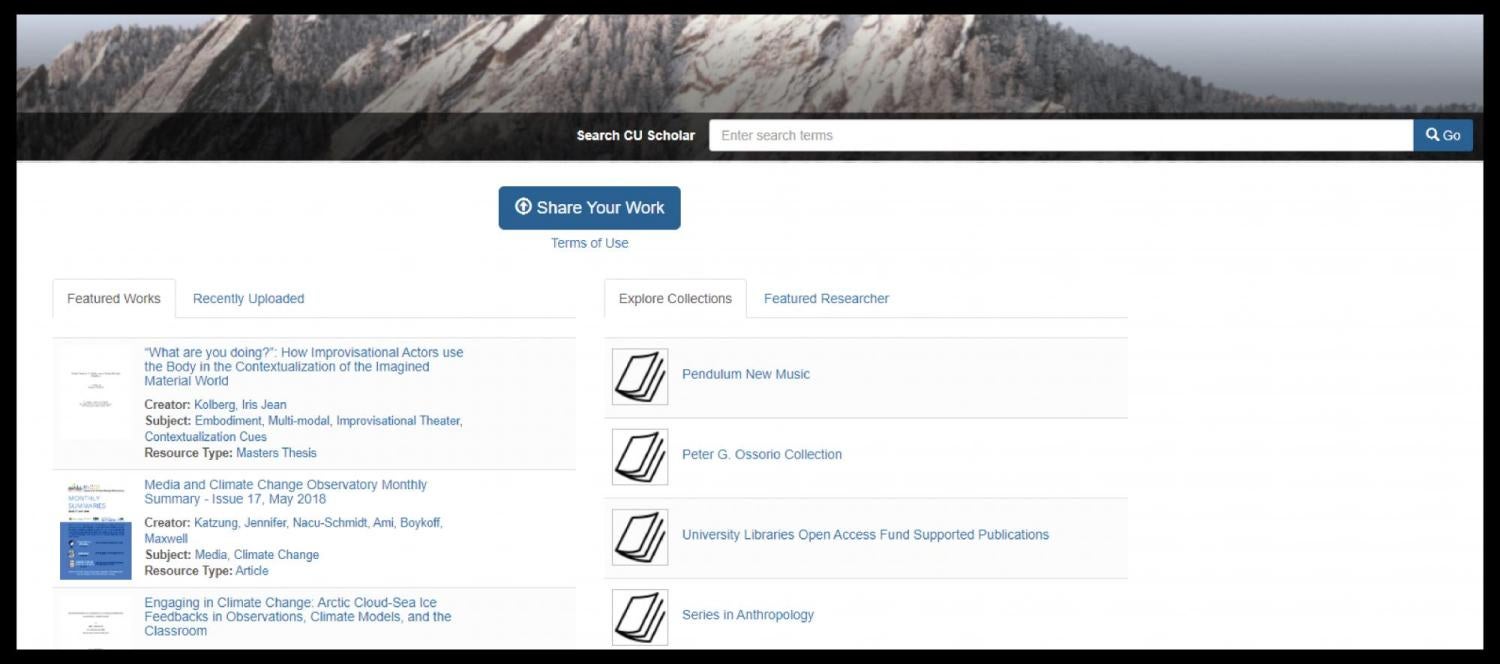University Libraries Launches New CU Scholar

CU Boulder’s institutional repository now has a new, more modern look.
CU Scholar is the place for faculty, students, and staff to deposit their academic works created during their time at the university. The repository provides free and worldwide access to one’s work and is maintained by the University Libraries.
CU Scholar also supports the campus open access policy, which the university adopted in 2015 and grants the university a non-exclusive license to provide open access to scholarly articles and conference proceedings written by university faculty.
“The mission of CU Scholar has always been to advance the research and teaching mission of the university,” Scholarly Communication Librarian Melissa Cantrell said.
The growth of the repository meant a growth in its mission. This is why Open and Digital Scholarship Services, Metadata Services, and Libraries IT have transferred approximately 11,000 graduate theses, dissertations, data sets, articles, tech reports, book chapters, and additional items to CU Scholar’s new home on an open-source platform.
Users exploring the new CU Scholar may be quick to pick up on the updates to CU Scholar. Andrew Johnson, Head of Data Services & Scholarly Communication, said that the most noticeable difference between the repository then and now lies in the transition from hosting site bepress to Samvera.
“Since 2014, CU Scholar has had commercially hosted software,” Johnson said. “We’re now on a locally hosted, source supported, open-source platform with entirely different software. That’s a big shift for us.”
Mark Stacy, Digital Library Software Architect with the Libraries was one of many who helped with the migration. His primary role focused on the deploying of a production-ready software stack and developing application code to include the CU Boulder metadata standards. He notes that moving towards open-source software captures the essence of what CU Scholar stands for.
“I believe the acceptance of open-source software is vital to allow CU Boulder to perform agile development and enable quick changes that react to CU Boulder requirements,” Stacy said.
The Libraries now also have an Open Journal System hosted by the Colorado Alliance of Research Libraries, which maintains the journals previously held on CU Scholar. Later this year, the Libraries will begin to take applications for hosting new journals.
Johnson said that the migration could not have happened on the timeline that it did without the collaborations within the Libraries.
“It was almost like 100 mini projects wrapped into one big project,” Head of Data Services & Scholarly Communication Andrew Johnson said. “In order to make these migrations happen so quickly, it had to be a collaborative effort.”
Learn more about what past CU Boulder faculty, staff, and students have produced. The new CU Scholar is available to browse now.

